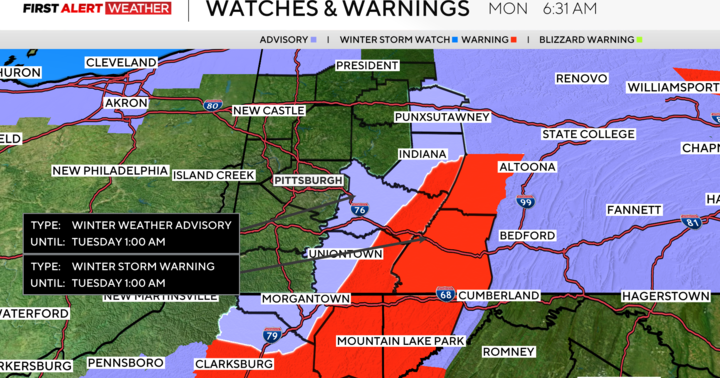BLOG: Derek Jeter - Roy Halladay - Cliff Lee - Cole Hamels - Bud Selig
By Bill Campbell
The 14-1 torching of the Atlanta Braves in one of the recent games at The Bank calmed a lot of nerves in Phillies Nation. While five Phillies have traveled toPhoenixto take part in All Star Game festivities, only two figure to play: Roy Halladay and Cliff Lee. Cole Hamels is barred from pitching because he worked last Sunday and Placido Polanco and Shane Victorino are injured. Considering that the Phillies were expected to have the best pitching rotation in baseball – and maybe the best ever – what they have accomplished over the first half of the season is truly remarkable, especially with Roy Ozwalt and Joe Blanton missing so many games.
Halladay, Lee and Hamels are ranked first, second and third in the National League in innings pitched. They are 31 and 13 combined in wins and losses, with an earned run average of 2.53. And, most important, their team is 40-17 among their total starts. The Phillies have won 57 games at this All Star break. Charlie Manuel and his pitching coach, Rich Dubee, pretty much know that, whenever one of their Big Three starts a game, he'll be good for at least 7 innings. That alone resembles paradise for the powers that be and also keeps the bullpen fresh which, despite its youth, is pitching splendidly. That the Big Three starters have gone for 7 innings in 44 of their 57 starts is almost incredible. However, it probably begs the question of possibly wearing them down as the second half unfolds. Have they gone too many innings? Or are we asking or expecting too much of them? Halladay has pitched as many as 239 regular season innings and has been around that total over the last 4 years. Lee has pitched as much as 272 innings in a season and Hamels, in his MVP season of 2008 when the Phillies won the World Series, worked 208 frames. The weather will get warmer, the pressure will increase. But history seems to tell us that the Big Three will endure.
Despite these gaudy pitching statistics, Charlie Manuel is, at heart, a hitting coach. Swinging the bat is his favorite conversational topic. And those 20 hits and 14 runs the other day were really enjoyable for him. He now is looking to his younger guys – Brown, Mayberry, Francisco, Gload and others – to have big days in the season's second half. This will only help make the pitching more outstanding.
I love baseball. Always have, for as long as I can remember. But, admittedly, the game's statistics sometimes become a bit overwhelming. The Phillies' pitching stats listed above are meaningful because they record just how domineering the Phils' pitching has been -- so good that it has carried them more than half-way to a 100 victory season, overcoming more than their share of injuries. But there was a stat the other day that I think we could have done without.
The Phillies have a comparatively unknown pitcher named Juan Perez. He's been pitching professionally for 14 years, mostly in the minors. He hadn't pitched for the Phillies in over 2 weeks and his appearance last Friday night was only his third of the season. He struck out 3 batters on 9 pitches, becoming only the second pitcher in major league history to do that in an extra inning. Quite a feat. I'm sure he enjoyed it – probably never will forget it. It hasn't happened in an extra inning since 1923 – even before my time. But unless you are a family member or devoted fan of Juan Perez, it was hardly worth recording. One of baseball's incidental stats -- of which there are many.
When will the 32 owners of baseball franchises ever get around to dissolving this curious connection that insists that the All Star Game has some bearing on the World Series? It's the brainchild of Bud Selig, the present commissioner that dictates that the winning team in the All Star Game decides the home field advantage in the World Series – even though one has nothing to do with the other. One is played in July, the other in October. It has raised the level of a meaningless exhibition game to that of the most important classic of the season. It also regulates pitching rotations to the extent that, if a pitcher who works on the preceding Sunday (such as Cole Hamels), he automatically forfeits his right to pitch in the All Star Game and may also force a manager to consider his pitching rotation at the end of the season. One of our regular baseball beat writers suggested recently that it would be a good idea if baseball would pay $150,000 to each of the All Star players' favorite charities, which would help many people and might prevent players from complaining about playing in the All Star Game. And, if they do, playing hard to win when they are selected instead of just gong through the motions. If you deduce from this that the writer is no fan of All Star Games in any sport, you're not only warm but blazing hot.
Derek Jeter never played for the Phillies but his recent accomplishment deserves comment. Three thousand hits is something only 28 major leaguers have attained in the game's history. It is equally compelling that Jeter is a Yankee, like Babe Ruth, Lou Gehrig, Joe DiMaggio and Mickey Mantle – none of whom recorded 3,000 hits. Jeter thus gets a line all to himself in Yankee history. On the day he reached 3,000 at home before his loyal fans, Jeter went 5 for 5, including a home run, and ever the team player, recorded a stolen base in a 5-4 victory. There was a festive air in the ball park and since Hit Number 3,000 was a home run it was left for a fan to gain possession. Afterwards, he emerged from the stands, gave the ball to the Yankees and was rewarded with 4 quality seats for every game for the rest of the season plus other autographed memorabilia. Which he has to list on his tax return. When even the most casual fan thinks of the Yankees, the names of Ruth and Gehrig immediately come to mind. While it is noteworthy that neither player recorded 3,000 hits, I find it amazing to learn that they didn't even come close: 2,721 hits for Gehrig and 2,578 for The Babe. Somehow that puts in proper perspective, at least for me, the total compiled by Pete Rose, the Hit King, of 4,256. Yet his denial for admittance to the Hall of Fame is still a controversial topic.







